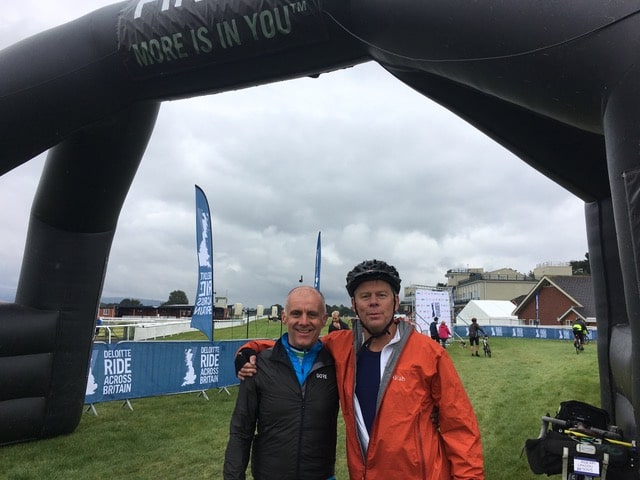This is the first monthly blog post by our CEO, Nick Harborne.
Asylum seekers and refuges seeking safety and sanctuary in the UK are often deeply traumatised.
Many of the people we meet and support at RRSG have lived through the most dreadful experiences, unimaginable to most of us.
They have faced devastating losses. They have lost their homes, their livelihoods and their communities and been separated from their loved ones. Many have witnessed terrible violence, been tortured, seen family and friends maimed, seen friends and family killed.
Many are then faced with making perilous journeys to get to the UK, experiencing continuing harassment, hardship, exploitation, always in danger of violence, sexual violence, trafficking, and slavery.
And when they finally arrive in the UK, their perilous journey is not over.
For the past 5 years the Syrian Vulnerable persons Resettlement programme has offered a safe route for refugees. Around 19 families have settled in Berks West CCG area. The clue however is in the title – vulnerable persons.
We are supporting families where fathers have been professionally tortured by those whose job it is to torture. We have had to fight with statutory services to get immediate healthcare and housing for a dad disabled by bomb shrapnel still in his body, placed in a house with a wife and three young children where water ran through the electric light switches every time it rained. We have supported people who have watched their parents being murdered.
Those who are not lucky enough to come from Syria, must find their own way – hiding away lorries, or boats – we have all seen the news.
Once people claim asylum they are looked after by the Home Office and dispersed around the country. Last year the Local Authorities in Berkshire agreed to work with the Home Office in accommodating dispersed asylum seekers. Private sector companies have the lucrative contracts with the Home Office to provide the accommodation. In Reading a subcontracted hotel accommodated 85 asylum seekers. The contract covered feeding people and the provision of minimal toiletries, but over and above that they are not contracted to provide support, of any sort. The COVID-19 pandemic has meant people have been living there, locked down, families to a single room, in some cases for over 10 months. No money, no entertainment, no English classes, no clothing, no education, no mental wellbeing support, no health support.
Two months ago, I was taking with a young mum there with a baby we suspect was a result of rape whilst a sex slave. Another resident was a victim of an acid attack to his face. He can see but is traumatised. He is alone here. His friend was blinded in the same attack. These poor people have now been resettled from the hotel. No one was told when or where they were going. One family with kids at school here in Reading was sent to Liverpool. Another husband and wife were sent to different towns. One guy with a scheduled operation in Reading, was moved to Birmingham.
In the UK, asylum seekers and refugees continue to suffer acute anxiety about the complex asylum process. They worry about accommodation, money, education, access to legal advice. They fear detention, deportation, destitution, and homelessness and hate crime. And there is a constant concern about loved ones left behind or missing.
And that was before the COVID-19 pandemic, which we all know causes considerable stress and anxiety. Refugees and asylum seekers have left their family and friends behind. We have the NHS looking after us. Imagine your mental health if your family was living in war torn Syria.
All this takes a heavy toll on their emotional and psychological wellbeing.
The Mental Health Foundation reports:
- Asylum seekers and refugees are more likely to experience poor mental health than the local population, including higher rates of depression, PTSD, and other anxiety disorders.
- The increased vulnerability to mental health problems that refugees and asylum seekers face is linked to pre-migration experiences (such as war trauma) and post-migration conditions (such as separation from family, difficulties with asylum procedures and poor housing).
- Research suggests that asylum seekers are five times more likely to have mental health needs than the general population and more than 61% will experience serious mental distress.
However, data shows that they are less likely to receive support than the general population.
RRSG is a registered user of the Warrick Edinburgh Mental Wellbeing Survey, developed to enable the measuring of mental wellbeing in the general population and the evaluation of projects, programmes and policies which aim to improve mental wellbeing. The scale has been widely used nationally and internationally for monitoring, evaluating projects and programmes, and investigating the determinants of mental wellbeing.
Our last annual survey at RRSG showed
- 43.68% of clients scored below the UK average for mental wellbeing.
- NHS use a score of 40 and below to indicate low mental wellbeing: 13.38% of our clients scored 40 and below.
Refugees and asylum seekers are not going anywhere. The Syrian relocation programme, a safe route for asylum seekers, has been successfully met. It is confirmed the scheme will continue under a new title the UK Resettlement Scheme.
There is also a 10-year plan from the Government to increase accommodation for dispersed asylum seekers in the South East in Berks West CCG area.
RRSG is calling for discussion and planning around mental health support and wellbeing specifically targeted at refugees and asylum seekers, and for clear established and dedicated pathways to access specialised trauma support.
In Reading we need to help refugees make sense of their experiences, we need to be able to support people while they wait for their asylum decision, and we need to help them to draw on their resilience and strength to recover and start rebuilding their lives.
The murders of Joe Ritchie-Bennett, James Furlong and David Wails in Forbury Garden are a tragically poignant example of where we collectively failed to do this. It was totally avoidable.





